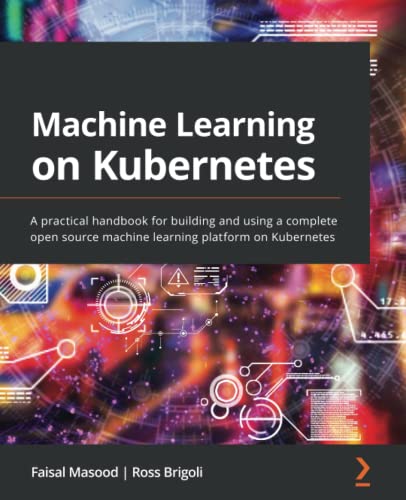Ross Brigoli is the author of Machine Learning on Kubernetes; we got the chance to sit down with him and find out more about his experience of writing with Packt.
Q: What are your specialist tech areas?
Ross: I am a Software Architect who enjoys solving complex problems. I have worked as a professional software engineering for more than 15 years. I previously lead a team of Data Engineers and Data Scientists and now currently helping businesses improve their software delivery speed through DevOps and Kubernetes.
Q: How did you become an author for Packt? Tell us about your journey. What was your motivation for writing this book?
Ross: I have always wanted to write a book. I have had software architecture pattern ideas before that I have written as blogs, but never yet had one that can fill up an entire book until now. Faisal, a colleague, and I have worked with businesses in delivering ML platforms on top of Kubernetes. We have decided to share this knowledge to a wider audience.
Q: What kind of research did you do, and how long did you spend researching before beginning the book?
Ross: Most of the book was mainly a product of several years of experiences. But I also took courses in Machine Learning from MIT to solidify my understanding on the subject of Machine Learning.
Q: Did you face any challenges during the writing process? How did you overcome them?
Ross: The most difficult part was when we had to put ourselves in the shoes of different personas. While writing the book, we had to think like a data architect, data scientist, data engineer and a platform operator. We have distributed the chapters in a way that we can minimize the number of hats we have to wear.
Q: What’s your take on the technologies discussed in the book? Where do you see these technologies heading in the future?
Ross: The technologies used in the book are are relatively new and are still evolving. But we have seen that more and more organisations as beginning to realize that they need an open source platform that supports their Machine Learning initiatives. We are expecting smaller organizations an startup, who cannot afford the commercial Machine Learning platforms, will be the early adopters of these platform.
Q: Why should readers choose this book over others already on the market? How would you differentiate your book from its competition?
Ross: There is no book out there that is quite like this yet. The book covers all aspects of Machine Learning project lifecycle, not just data science or machine learning.
Q: What are the key takeaways you want readers to come away with from the book?
Ross: We want the readers to realize that the challenges in Machine Learning projects can be solved. And that it can be solved by open source software. We want the readers to realize that model training and data science is just a small part of a much bigger picture.
Q. What advice would you give to readers learning tech? Do you have any top tips?
Ross: Read the book next to a computer. Perform all the exercises in the book until the end. If there are parts of the book you do not fully understand, do a quick search. We do not expect every reader to know both Kubernetes and Data science/Machine learning.
Q. Do you have a blog that readers can follow?
Ross: I have a hobby blog at http://rossbrigoli.com that I have not been updating for a while. You can also follow me in LinkedIn. There is only one Ross Brigoli on LinkedIn.
Q. Can you share any blogs, websites and forums to help readers gain a holistic view of the tech they are learning?
Ross: https://towardsdatascience.com/ has good contents in data science and machine learning.
Q. How would you describe your author journey with Packt? Would you recommend Packt to aspiring authors?
Ross: Yes. It was great experience.
Q. Do you belong to any tech community groups?
Ross: I am a part of Hackware (a community of hardware hackers), and several tech meetup groups in Singapore.
Q. What are your favorite tech journals? How do you keep yourself up to date on tech?
Ross: I like WIRED and TechCrunch.
Q. How did you organize, plan, and prioritize your work and write the book?
Ross: We have had regular catchups. Each chapter we layout the outline together and then we decide who’s writing which section. Then we review each other’s work.
Q. What is that one writing tip that you found most crucial and would like to share with aspiring authors?
Ross: Read more books and learn form the authors. Get a good senior editor!
You can find Ross’s book on Amazon by following this link : Please click here









